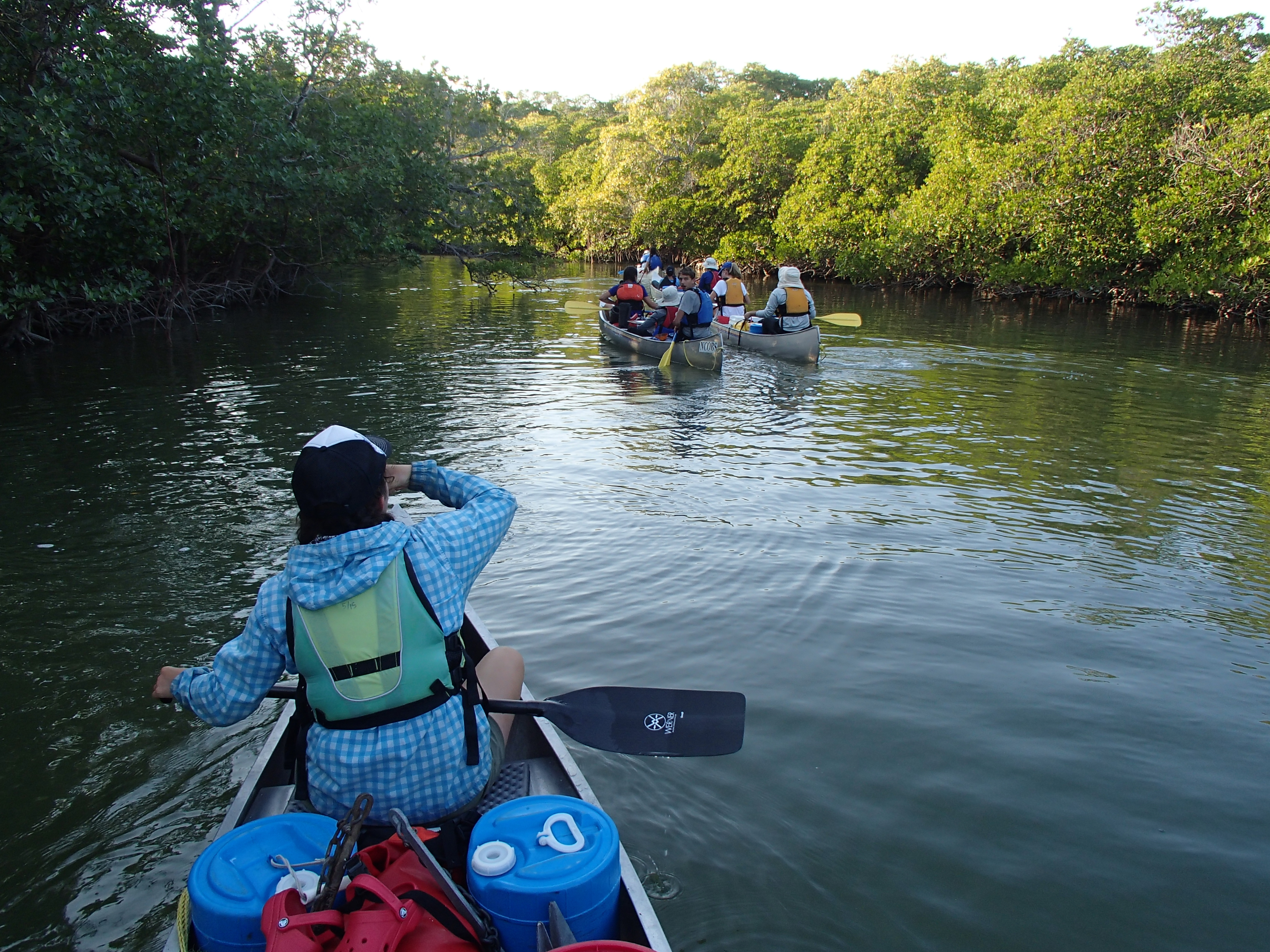Ransom Everglades School
Florida Everglades Canoeing
DATES: Week 1 January 10 - 14, 2024 | Week 2 January 17 - 21, 2024 | Week 3 January 25-29, 2024

Photos from previous years: 2019, 2020, 2022, 2023: Week 1, Week 2, Week 3 & Week 4; 2024
FLORIDA EVERGLADES
This course area is on the west coast of southern Florida in the Everglades National Park and Ten Thousand Islands national Wildlife Refuge. As the largest sub-tropical wilderness in the United States and third-largest national park in the lower 48 states, The Everglades provides a variety of precious wildlife habitat. The aquatic preserve includes more than 350 species of birds, 300 species of fresh and saltwater fish, and 40 species of mammals, within its confines. Everglades National Park is one of only three locations in the world to show-up on the following lists: an International Biosphere Reserve, a Wetland of an International Importance and World Heritage Site.
TEN THOUSAND ISLANDS, FL
Participants will paddle through lush mangrove tunnels in a land of contrast: between tropic and semi-tropic, land and sea, and salt and fresh water as they learn to work together to read tide charts, explore unique ecosystems, cook and set-up camp on white sandy beaches under the stars and paddle to new areas each day. Participants will also learn about what makes the Ten Thousand Islands famous worldwide, the environmental value the area adds, and how we can better take care of it.
CANOEING
You can expect to spend a good deal of time each day in canoes. You will be in a tandem canoe, which means there are two participants per canoe. Depending on the wind and weather, the level of difficulty will vary day to day. You and your crewmates will learn or practice:
- expedition risk assessment and management
- route planning and navigation
- paddle strokes and techniques for propulsion and steering
- canoe-based assisted rescues and self-rescues.
- canoe expedition equipment use, care and maintenance.
- how to work with your paddling partner
It will be necessary for you and your crewmates to perform a swim assessment; as well as a flip and swim assessment as practice for paddling and self-rescue. This activity is closely monitored by your instructors. It is critical for us to determine your paddling comfort as you and your crew explore the area. Even if you are a non-swimmer or weak swimmer, you will still participate in this safety assessment. All students will be wearing personal flotation devices (PFDs) during the assessment. Personal flotation devices (PFDs) are required apparel anytime students are on the water.
SERVICE
Service will be a continuous theme throughout your course. The ethic of service is practiced through Leave No Trace camping techniques, reaching out with compassion to your fellow crewmates and working together as a team to overcome the challenges of Outward Bound.
SOLO
Solo typically occurs more than halfway through your course. Your instructors will assign each participant an individual campsite within a designated area. Your instructors will teach you procedures to follow during solo and monitor you during this experience. You will know the location of your instructors’ campsite should you need to contact them; otherwise it is essential that you remain in your designated area. If your course has an overnight solo you will have your clothing, food and water. In addition, you will have Outward Bound issued gear: including rain gear, shelter, sleeping bag, compass and whistle. You will not be physically active during solo, as solo is a time for rest, recharge and reflection. Solo is also a good time to write in the journals we provide. If you have questions or concerns, please discuss with your Student Services Representative or your instructors.
FINAL CHALLENGE EVENT
At the end of your course, you may participate in a final challenge event. This is an opportunity to see how
much your skills have improved since you began your course.
Here are some books that we encourage you to read as you plan for your course:
- The Outward Bound Wilderness First-Aid Handbook by Jeff Isaac
- Leave No Trace: A Practical Guide to the New Wilderness Ethic by Annette McGivney
- Liquid Land by Ted Levin
- Ten Thousand Islands by Randy Wayne Wright
- The Swamp by Michael Grunwald
- Stolen Water by W. Hodding Carter
Depending on the location of your course, you may be sleeping on the beach in tents with up to 1 other participants or on camping platforms in a personal bug tent. You will also be given a ground sheet and a foam sleeping pad to place under your sleeping bag.
